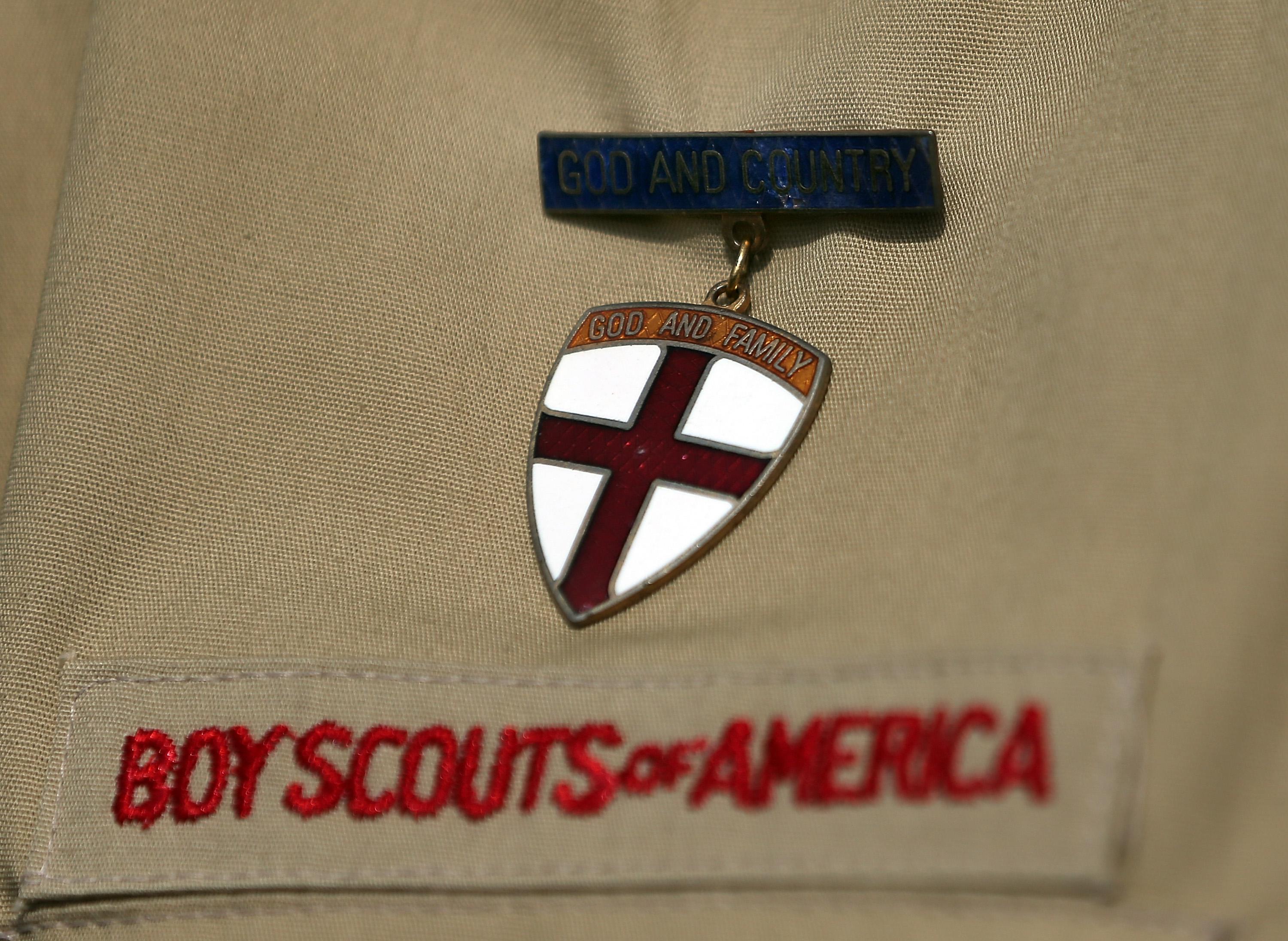In a not entirely surprising move , The Boys Scouts of America announced today that it favors allowing boys into the program regardless of their sexual orientation. As Amanda Marcotte pointed out earlier on the blog, this is clearly a bit of good news on an otherwise unhappy day. Pending a vote of the national council members in May, gay scouts will no longer need to worry about being kicked out, gay former members like myself can stop hiding our Eagle badges from the repo man, and any kids who’ve stayed out because of the policy will be able to don the organization’s army green short-shorts and jaunty neckerchiefs as they like.
All good stuff. However, the ban against openly gay adult leaders and volunteers will remain in place. According to the official BSA recommendation, this is because they are part of that genre of people who “engage in behavior that would become a distraction to the missions of the BSA”—you know, by having private romantic lives and living without shame. In fact, if you spend a little time (an admittedly rare commodity for journalists on a day like today) in that document, the BSA’s “new” position starts to seem much less progressive. I’d go so far as to say it’s insidiously conservative.
What the BSA is doing is reinforcing the closet at a time when the rest of the country is getting rid of it, as well as preserving the daily status quo of the troops. The exclusion of gay adults signals that, contrary to Amanda’s hope that boys will feel empowered to speak openly about their identities (not to mention their budding love lives), gay scouts—both current and new—will be expected to remain as invisible as they have always been. In all but the most extremely liberal troops, the strong message will remain that homosexuality is something you’re meant to keep quiet about, even if that’s not the official policy anymore. The new change merely accepts the fact that “they walk among us,” and that alone will do nothing to change the culture.
For that to happen, gay scouts would have to overcome the hierarchical and regimented nature of Scouting—not to mention the emotional stiltedness of teenage boyhood—to share their feelings and stories with their peers and leaders. Some may well do this, of course, but if my experience in Scouting was any measure, most will take their cues from the top, stay quiet and focus on collecting kindling. And anyway, is it fair to put the burden of cultural change on kids who may still be sorting out what it means to be gay in the first place? Though it’s true, as Amanda notes, that many more teens are out today than in the past—according to the HRC, 61% of LGBT-identified 13-17 year-olds are out at school—that fact only applies to those teens who are already “LGBT-identified,” which is largely a matter of self-awareness, both sexual and political. When I was that age not so long ago and in Scouts, I certainly felt physical attraction to guys, but I honestly had no conception of myself as possessing a hidden “gay” identity. While I’m in awe of those teens that do figure themselves out at a young age, I’m willing to bet that masc-cred-friendly Scouting attracts far more people who are still working things out. It would have been nice to have a Scout leader to help me with that.
But in the end, it is that youthful uncertainty that the BSA is counting on. This preparatory clause in the official recommendation is very telling: “WHEREAS, youth are still developing, learning about themselves and who they are, developing their sense of right and wrong, and understanding their duty to God to live a moral life…” I’ll finish the thought—we’ll let the gays in hoping that Scouts will straighten them out before it’s too late.
Scouting is all about men modeling good behavior, particularly of the ethical and manly sort, to boys. What message do you think it sends to a gay teenager when the adult version of himself is considered unworthy of being a role model? Indeed, when the official policy feels that he would be a “distraction” to the process of becoming a good adult? Amanda pointed out in her post that the BSA should stop trafficking in the notion that adult gay men are dangerous to youths, as studies have shown time and again that that is not the case. Seconded. But my suspicion is that they already have. What really scares them is not the malign influence of lecherous gay men on boys; rather, it’s the validation, comfort, and hope that having strong gay role models would provide to boys with an identity that the BSA wishes would go away. If the goal is to transform boys into men who are “physically strong, mentally awake and morally straight,” then the BSA must acknowledge that gay men can be all of those things, too.
